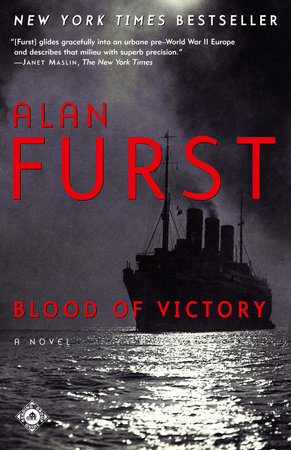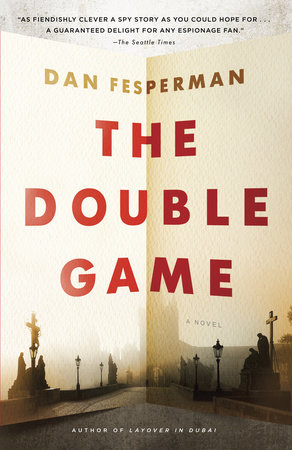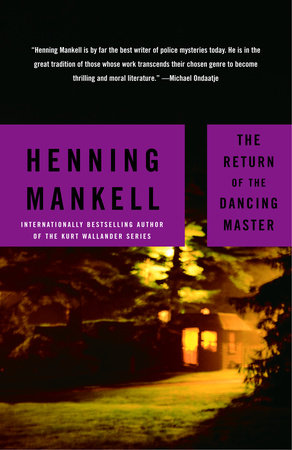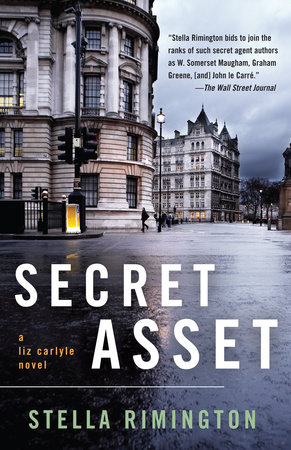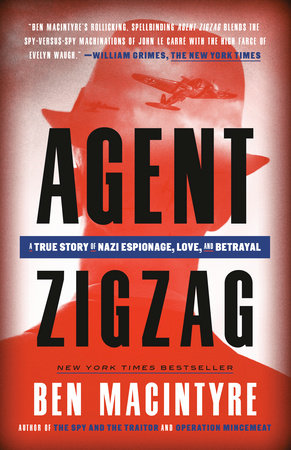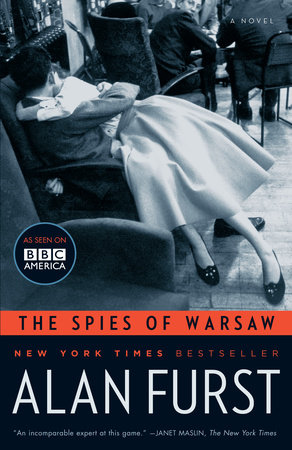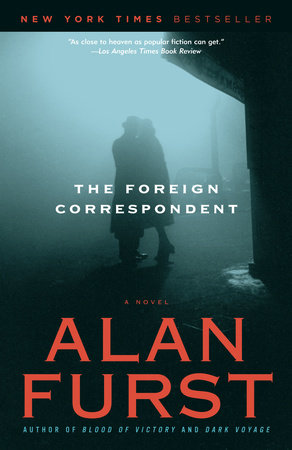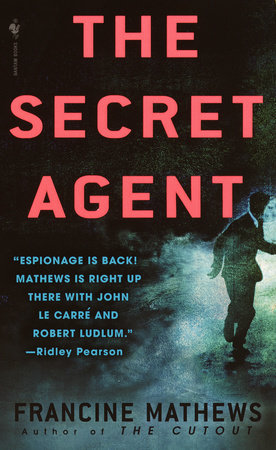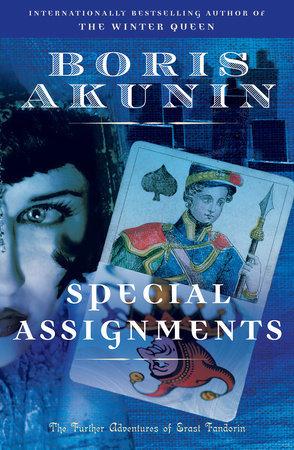Q: How did you get the idea for the plot of The Arms Maker of Berlin, which involves World War II spies, the Resistance movement, the nuclear arms race, and a historian trying to piece it all together?
A: It all goes back to the three years I lived in Berlin, from ’93 to ’96. I met so many people who to one degree or another shared the sentiment of the character Berta Heinkel when she said, “I wouldn’t be German if I wasn’t haunted.” The city really is a landscape of ghosts, a bizarre theme park dedicated to everything that went terribly wrong in the 20th Century. Following the bloodbath of the First World War you had the upheaval and hyper-inflation of the Weimar years, and then Hitler and the Nazis with all their industrialized horrors, followed by the bleak spy-on-your neighbor culture of East Germany, sealed up behind the Berlin Wall. That would be enough to haunt just about anyone, especially in a society that is so given to discussing and dissecting its own problems to the point of distraction. There was a cartoon that ran in Der Spiegel while I was there that showed Germans unloading from a bus that had just arrived at the Pearly Gates of the afterlife. Signs pointed in two directions, one toward “Heaven” and the other toward “Discussion of Heaven,” and of course all the Germans were heading for the discussion. So even while I was writing other novels set in the Balkans, Afghanistan, or the Middle East, I’ve always had an idea kicking around in the back of my head that someday I would write about the Germans and how they lived with all their troubled history, for better and for worse. And when I finally set out to do this, I knew I’d probably be more effective to tackle it from a more detached American point of view, and that’s where the historian Nat Turnbull came into the picture.
Q: What research did you conduct in order to write the book? Did you travel to Germany or Switzerland?
A: First I spent about a month going through the declassified files of the U.S. wartime spy agency, the OSS, down at the National Archives in College Park, since so much of the mystery at the core of the plot has to do with something the OSS may or may not have kept tabs on. It was fascinating stuff, full of amazing details. Everything from agent reports to their expense accounts. And from time to time, just like Nat Turnbull, I came across yellow CIA notices explaining that certain materials had been removed and reclassified as official government secrets, more than sixty years after the fact. I also went back to some of my old stomping grounds in Berlin, where I was fortunate enough to be able to tour the former home of resistance figure Dietrich Bonhoeffer, and also pay a visit to the memorial site at Plotzensee Prison, both of which come into play in some of the book’s key scenes. And, just as Nat Turnbull did, I spent several days following in the footsteps of US spymaster Allen Dulles in all his old Swiss haunts in the streets of Bern and Zurich. Not exactly hardship duty when compared to some of my previous research in places like Afghanistan, but the eating and lodging were certainly far superior, not to mention the beer!
Q: You capture the passion of a historian so vividly. Our intrepid protagonist, college history professor Nat Turnball, sits in the library in the beginning of the novel, “inhaling the stale, silent breath of all those books and ledgers. They, too, seemed to rest at night, the cells of a drowsing giant who might roll over at any moment and crush him with the weight of their lore.” As a novelist who does such copious research for your novels, you are also a student of history. Have you developed the same belief as Nat—that history might crush us if we’re not careful?
A: I suppose so, but more in the sense that anything we immerse ourselves in too deeply can end up crushing the life out of us. Although with history, I think that the people who try to remain oblivious to it actually run a greater danger of being crushed – or maybe “ambushed” would be the better word – than those who are aware of its lurking presence. Nat’s fear comes from having seen firsthand history’s power to shape and destroy present-day lives. But by being more aware of the dangers he’s probably better equipped to leap to safety once the ambush occurs. With a burrower like Nat it’s the forces of the here and now that pose a greater hazard, just as he tells his wife on the book’s opening
page.
Q: On the flip side, it’s safe to say that Nat’s historian’s enthusiasm sometimes runs away with his better judgment—even, perhaps, with his humanity. When worried about his college age daughter, he worries that “posterity would deem him a no-show in this disaster.” He is consumed by the thought of how this moment will play out and be looked back upon. Do you fault Nat for this thought, and with his overall obsession with history?
A: I really only fault Nat for succumbing, as many of us do, to the temptations of his deepest passions and obsessions. I suppose you could also fault him for not finding the thornier problems of his life – his failed marriage, his role as a father (at least at first) – sufficiently engaging to give them the attention they require. Maybe deep down he knows they’ll require a lot more energy to deal with than some mystery he might come across in the cozy depths of an archive, where no one will confront him with a conflicting point of view.
Q: The book touches on the fact that so many eyewitnesses to the atrocities of the Nazis have died, and it’s only a matter of time before only the written record will be able to tell us what occurred. How do you think Germany will change when that happens?
A: It is already changing, and in some ways for the better. Germany, if only because of its size and wealth, needed to assume a greater leadership role in Europe, but for years kept ducking its responsibility due to its own insecurities. One example: failing to help ward off the awful events in the former Yugoslavia in the early ’90s, due to what the Nazis had done there fifty years earlier. While there were legitimate concerns on that aspect (the Serbs would have found it very difficult to trust them, to say the least), they certainly could have wielded a great deal more influence in bringing Croatia into line. But I actually had a neighbor in Berlin tell me with a straight face, “Oh no, we could never send any peacekeeping troops there, because we wouldn’t be able to help ourselves from becoming a conquering army again.” So I think these issues of guilt and complicity will always be in the backs of their minds, at least for another generation or so. Meaning that even as the Germans assume a role of greater leadership in the European Union, they’ll be much more likely to exercise power with restraint. And that’s a good thing.
Q: When we first meet the character Kurt Bauer, it is 2007 and he is a frail old man living in Berlin. Through flashback chapters that take place in 1943, we meet the young Kurt, son of a prominent manufacturer, who falls in love with a girl named Liesl Folkerts. It’s not impossible to see how Kurt’s intense love for Liesl led him to blind himself to the consequences of the actions he decided to take in 1943. Is that ambiguity part of what you were trying to explore with this novel?
A: Very much so. Kurt at age seventeen is pretty likeable, and at times even admirable, especially given what was going on around him. He’s probably acting no worse that most of use would have under the same circumstances at that age, at least for a while. Even when his actions turn increasingly selfish, at some level he really is doing these things out of love, which, given his youth, isn’t so hard to understand, or even excuse. As terrible as he becomes later in life, he is also a tragedy – one of those “weaker vessels” who fascinates Nat Turnbull so much as a historian.
Q: The domino effect of Kurt’s actions reminds me of a line in Arms Mak er that says Nat and his mentor “shared a belief that scoundrels, not heroes, were the driving forces of history, and thus worthy of greater scrutiny.” Do you agree with that assessment? Do you see it playing itself out in any present-day conflicts the world is witnessing?
A: I do tend to agree. Just look at the forces that most dramatically shaped history throughout the 20th century. The dolts whose nationalism and stubborness led to World War I, and then the horrors ushered in by Hitler and Stalin. And now you have Bin Laden and any number of butchers and extremists around the globe. Of course there are also the Ghandis and the Martin Luther Kings, trying and succeeding to bring about change non-violently. But they strike me as the noble exceptions that prove the rule. More often than not, scoundrels will set the tone, while the so-called good guys spend their energies and emotions reacting to all the assorted misdeeds.
Q: Nat and his daughter spar with each other by quoting lines from Emily Dickinson poems. You must be an Emily Dickinson fan. Why did you decide to include her poems in the book in this way?
A: I’m not, actually, although I do admire her ability to stir up a maximum of emotion with a minimum of words. In her better poems, her aim and precision are remarkable. But I did want to give Nat’s daughter some sort of obsession similar in intensity to his own, and Dickinson seemed like pretty plausible territory for an undergraduate who was the child of a divorce. Plus, it gives Nat a chance to see a part of himself in her. And, in turn, it may well allow her to understand him a bit better.
Q: What’s your next project? Is it sending you to any far-flung destinations for research?
A: It’s a novel set in Dubai, probably one of the world’s most surreal landscapes of wretched excess, as I found out when I visited for several weeks. A lot of people are already familiar with some of the more outlandish aspects — a snowy ski slope inside a desert mall, a bizarre resort of manmade islands built to resemble a map of the world. What you also have is a strict local culture of modesty and piety living cheek to jowl with a far larger ex-pat population that loves to party hearty and shop ’til it drops. If something is excessive, or outsized, or overly ostentatious, then
you’ll probably find it in Dubai, and it will be existing alongside a mosque where women dare not show their faces. And to build this fantasy dichotomy the government had to import a virtually enslaved underclass of construction workers and prostitutes, which in turn have provided a foothold for mafia organizations from Russia, India and Iran. In other words, it’s the perfect place to set a suspense novel.






